Pop-20Mg Tablet 10'S
MRP ₹28
(Inclusive of all Taxes)
₹4.2 Cashback (15%)
Provide Delivery Location
Online payment accepted
 Prescription drug
Prescription drugWhats That
Composition :
Manufacturer/Marketer :
Consume Type :
Expires on or after :
Return Policy :
About Pop-20Mg Tablet
Pop-20Mg Tablet belongs to a group of medicines called beta-blockers used alone or together with other medicines to treat high blood pressure (hypertension), heart-related chest pain (angina), heart rhythm disorder (arrhythmia) and preventing symptoms of migraine headache and tremors (fits). It affects our heart and blood circulatory system, especially controlling blood through arteries and veins. High blood pressure adds to the workload of the heart and arteries. If it continues for a long time, the heart and arteries may not function properly. This can damage the blood vessels of the brain, heart and kidneys, resulting in a stroke, heart failure, or kidney failure. Lowering blood pressure may reduce the risk of stroke and heart attacks.
Pop-20Mg Tablet plays a vital role in relaxing our blood vessels by blocking the action of certain natural substances in your body. This lowers your blood pressure and helps reduce your risk of a stroke, a heart attack, other heart problems or kidney problems in the future. This medicine needs to be taken regularly to be effective.
You can take Pop-20Mg Tablet orally with or without food or as directed by your physician. Swallow the whole tablet with a glass of water. Do not crush, chew or break it. Pop-20Mg Tablet is preferable to take at the same time every day for better results. Pop-20Mg Tablet is generally safe to consume. You may have common side effects like feeling dizzy or exhausted, cold hands or feet, difficulty sleeping, and nightmares. These side effects are usually mild and short-lived. However, if the side effects are persistent, reach out to your doctor.
Don't stop taking Pop-20Mg Tablet without talking to your doctor first. Stopping Pop-20Mg Tablet gradually may cause heart rhythm and blood pressure changes and cause chest pain or a heart attack. Your doctor will lower your dose gradually over some time to help prevent these symptoms. You should not use Pop-20Mg Tablet if you have a very slow heartbeat, asthma, serious heart condition (sick sinus syndrome) or any heart blockage. Children weighing less than 4.5 pounds should not be given a Pop-20Mg Tablet . It should not be given to children less than 12 years of age. Before taking Pop-20Mg Tablet , you should tell the doctor if you have any muscle disorder (myasthenia gravis, rhabdomyolysis), breathing problems (COPD, bronchitis, emphysema), low blood sugar level (hypoglycaemia), low blood pressure (hypotension), depression, previous heart failure, liver/kidney disease, thyroid hormone disorder, adrenal gland cancer or problems with circulation (Raynaud's syndrome).
Uses of Pop-20Mg Tablet
Directions for Use
Key Benefits
Pop-20Mg Tablet works by blocking both beta receptors, namely beta 1 and beta 2. Pop-20Mg Tablet blocks beta 1 receptor located in the heart's cells, lowering heart rate and decreasing heart blood pumping frequency, decreasing raised blood pressure. On the other hand, Pop-20Mg Tablet also blocks beta 2 receptors located in the lungs (bronchioles) and blood vessels of skeletal muscle, narrowing it. This, in turn, lowers your overall body's blood pressure and helps reduce the risk of a stroke, a heart attack, heart problems or kidney problems in the future. Pop-20Mg Tablet also improves the symptoms of heart-related chest pain (angina) and may increase a person's stamina to do exercise with angina. Pop-20Mg Tablet is used in combination with thiazide diuretics and other medicines to treat high blood pressure. Additionally, Pop-20Mg Tablet reduces symptoms of essential tremor (fits) and prevents migraine. Pop-20Mg Tablet can reduce symptoms of too much thyroid hormone (thyrotoxicosis) and can be taken together with thyroid-related medicines to treat an overactive thyroid.
Storage
- Hydrate your body: Drink enough water to prevent dehydration and headaches.
- Calm Your Mind: Deep breathing and meditation can help you relax and relieve stress.
- Rest and Recharge: Sleep for 7-8 hours to reduce headache triggers.
- Take rest: lie down in a quiet, dark environment.
- Cold or warm compresses can help reduce tension.
- Stay Upright: Maintain good posture to keep symptoms from getting worse.
- To treat headaches naturally, try acupuncture or massage therapy.
- Over-the-counter pain relievers include acetaminophen and ibuprofen.
- Prescription Assistance: Speak with your doctor about more substantial drug alternatives.
- Severe Headaches: Seek emergency medical assistance for sudden, severe headaches.
- Frequent Headaches: If you get reoccurring headaches, consult your doctor.
- Headaches with Symptoms: Seek medical attention if your headaches include fever, disorientation, or weakness.
- Drink water or other clear fluids.
- To prevent worsening of pain, limit intake of tea, coffee, or alcohol.
- Include bland foods like rice, toast, crackers, and rice in your diet.
- Avoid lying down immediately after eating as it may cause indigestion or heartburn.
- Avoid acidic and spicy food as it may cause indigestion.
- Chest pain may last for a while and needs immediate medical attention as it is a significant health issue to be attended to.
- Take rest and refrain from doing physical activity for a while, and restart after a few days.
- Try applying an ice pack to the strained area for at least 20 minutes thrice a day. Ice pack thus helps reduce inflammation.
- Sit upright and maintain proper posture if there is persistent chest pain. • Use extra pillows to elevate your position and prop your chest up while sleeping.
- Inform Your Doctor: Notify your doctor immediately about your diarrhoea symptoms. This allows them to adjust your medication or provide guidance on managing side effects.
- Stay Hydrated: Drink plenty of fluids to replace lost water and electrolytes. Choose water, clear broth, and electrolyte-rich drinks. Avoid carbonated or caffeinated beverages to effectively rehydrate your body.
- Follow a Bland Diet: Eat easy-to-digest foods to help firm up your stool and settle your stomach. Try incorporating bananas, rice, applesauce, toast, plain crackers, and boiled vegetables into your diet.
- Avoid Trigger Foods: Steer clear of foods that can worsen diarrhoea, such as spicy, fatty, or greasy foods, high-fibre foods, and dairy products (especially if you're lactose intolerant).
- Practice Good Hygiene: Maintain good hygiene to prevent the spread of infection. To stay healthy, wash your hands frequently, clean and disinfect surfaces regularly, and avoid exchanging personal belongings with others.
- Take Anti-Diarrheal Medications: If your doctor advises, anti-diarrheal medications such as loperamide might help manage diarrhoea symptoms. Always follow your doctor's directions.
- Keep track of your diarrhoea symptoms. If they don't get better or worse or are accompanied by severe stomach pain, blood, or dehydration signs (like extreme thirst or dark urine), seek medical help.
- Inform your doctor about your constipation symptoms. They may adjust your medication or advise alternative treatments.
- Stay hydrated by drinking sufficient of water (at least 8-10 glasses a day) to help soften stool and promote bowel movements.
- Increase fibre intake by eating foods high in fibre, such as fruits, whole grains, vegetables and legumes, to help bulk up the stool.
- Establish a bowel routine by trying to go to the bathroom at the same time each day to train your bowels.
- Engaging in regular exercise, like walking or yoga, can support in bowel movement stimulation.
- Consult your doctor if constipation persists, and discuss alternative treatments or adjustments to your medication.
- Report the itching to your doctor immediately; they may need to change your medication or dosage.
- Use a cool, damp cloth on the itchy area to help soothe and calm the skin, reducing itching and inflammation.
- Keep your skin hydrated and healthy with gentle, fragrance-free moisturizers.
- Try not to scratch, as this can worsen the itching and irritate your skin.
- If your doctor prescribes, you can take oral medications or apply topical creams or ointments to help relieve itching.
- Track your itching symptoms and follow your doctor's guidance to adjust your treatment plan if needed. If the itching persists, consult your doctor for further advice.
- Skin rash caused by allergies is due to irritants or allergens. Therefore, avoid contact with such irritants.
- Consult your doctor for proper medication and apply an anti-itch medication. Follow the schedule and use the medication whenever needed.
- Protect your skin from extreme heat and try to apply wet compresses.
- Soak in the cool bath, which gives a soothing impact to the affected area.
Drug Warnings
Pop-20Mg Tablet should not be used in the cardiogenic shock (heart unable to pump sufficient blood) and heart failure condition. Don't stop taking $ name without talking to your doctor first. Stopping Pop-20Mg Tablet gradually may cause heart rhythm and blood pressure changes and cause chest pain or a heart attack. Your doctor will lower your dose gradually over some time to help prevent these symptoms. You should not use Pop-20Mg Tablet if you have a very slow heartbeat, asthma, serious heart condition (sick sinus syndrome) or any heart blockage. Children weighing less than 4.5 pounds should not be given a Pop-20Mg Tablet . It should not be given to children less than 12 years of age. Before taking Pop-20Mg Tablet , you should tell the doctor if you have any muscle disorder (myasthenia gravis, rhabdomyolysis), breathing problems (COPD, bronchitis, emphysema), low blood sugar level (hypoglycaemia), low blood pressure (hypotension), depression, previous heart failure, liver/kidney disease, thyroid hormone disorder, adrenal gland cancer or problems with circulation (Raynaud's syndrome). You should avoid discontinuing the use of Pop-20Mg Tablet before undergoing any surgery. Intake of Pop-20Mg Tablet may mask symptoms of diabetes. So tell your doctor if you have type 1 or type 2 diabetes. It may also worsen your symptoms of congestive heart failure and bradycardia (slow heart rate less than 60). You should regularly monitor your prothrombin time if Pop-20Mg Tablet is taken with anti-coagulants like warfarin.
Drug-Drug Interactions
Drug-Drug Interactions
Login/Sign Up
Co-administration of Rilpivirine is taken with Pop-20Mg Tablet, can decrease the absorption and blood levels of Rilpivirine and make the medication less effective.
How to manage the interaction:
Taking Pop-20Mg Tablet with Rilpivirine can lead to an interaction, please consult a doctor before taking it. Do not stop using any medications without talking to a doctor.
Taking Gefitinib with Pop-20Mg Tablet reduces the acidity level in the stomach and may interfere with the absorption of Gefitinib and reduce its effectiveness.
How to manage the interaction:
Taking Pop-20Mg Tablet with Gefitinib together can possibly result in an interaction, it can be taken if your doctor has advised it. You are recommended to take gefitinib 12 hours before or 12 hours after Pop-20Mg Tablet to help minimize the impact of the interaction. Do not discontinue the medication without consulting a doctor.
Taking Pop-20Mg Tablet with Pazopanib may reduce the effectiveness of pazopanib.
How to manage the interaction:
If you are supposed to take Pop-20Mg Tablet and Pazopanib together, but can be taken together if prescribed by a doctor. However, if you experience any unusual symptoms contact your doctor immediately. Do not stop using any medications without first talking to your doctor.
Taking Nelfinavir with Pop-20Mg Tablet may decrease the absorption and blood levels of Nelfinavir and reduce its effectiveness.
How to manage the interaction:
Taking Pop-20Mg Tablet with Nelfinavir together can possibly result in an interaction, but it can be taken if a doctor has advised it. A doctor can recommend other options that won't cause any problems when taken together. Do not stop using any medications without a doctor's advice.
Taking Erlotinib with Pop-20Mg Tablet may interfere with the absorption of Erlotinib into the bloodstream, and reduce its effectiveness.
How to manage the interaction:
Taking Pop-20Mg Tablet with Erlotinib together can possibly result in an interaction, but it can be taken if a doctor has advised it. A doctor can recommend other options that won't cause any problems when taken together. Do not stop using any medications without a doctor's advice.
Taking Dasatinib with Pop-20Mg Tablet may decrease the blood levels of Dasatinib and reduce its effectiveness.
How to manage the interaction:
Taking Pop-20Mg Tablet with Dasatinib together can result in an interaction, but it can be taken if a doctor has advised it. In case of any unusual side effects, contact a doctor. Do not stop using any medications without a doctor's advice.
Taking Pop-20Mg Tablet can make Dacomitinib less effective by reducing its absorption in the body.
How to manage the interaction:
Taking Pop-20Mg Tablet with Dacomitinib together can possibly result in an interaction, but it can be taken if a doctor has advised it. A doctor can recommend other options that won't cause any problems when taken together. Do not stop using any medications without a doctor's advice.
Co-administration of Methotrexate with Pop-20Mg Tablet can increase the levels and side effects of Methotrexate.
How to manage the interaction:
Although there is a possible interaction between Pop-20Mg Tablet and methotrexate, you can take these medicines together if prescribed by a doctor. However, if you experience any symptoms such as nausea, vomiting, loss of appetite, increased or decreased urination, sudden weight gain or weight loss, fluid retention, swelling, shortness of breath, tiredness, weakness, or dizziness, consult a doctor. Do not stop using any medications without consulting a doctor.
Co-administration of Pop-20Mg Tablet reduces stomach acid, decreases the absorption and blood levels of Atazanavir, and reduces its effectiveness.
How to manage the interaction:
Taking Pop-20Mg Tablet with Atazanavir together can possibly result in an interaction, but it can be taken if a doctor has advised it. A doctor can recommend other options that won't cause any problems when taken together. Do not stop using any medications without a doctor's advice.
Drug-Food Interactions
Drug-Food Interactions
Login/Sign Up
Diet & Lifestyle Advise
- Keep your weight under control with a BMI of 19.5-24.9.
- Regular physical activity or exercise for at least 150 minutes per week or about 30 minutes most days of the week. Doing this can help lower your raised blood pressure by about 5 mm of Hg.
- Option for a diet rich in whole grains, fruits, veggies and low-fat dairy products.
- Limit sodium chloride (table salt) intake in your daily diet to 2300 mg per day or less than 1500 mg is ideal for most adults.
- If you are taking alcohol, then only one serving for women and two for men is advisable.
- Quitting smoking is the best strategy to lower the risk of heart disease.
- Avoid chronic stress as it can raise your blood pressure. Try to enjoy and spend time with your loved ones to cope with stress and practice mindfulness techniques.
- Monitor your blood pressure daily and if there is too much fluctuation, immediately contact your doctor.
- Including heart-healthy omega-3 fatty acid-containing food drinks in your daily diet. You can also use low-fat cooking oil like olive oil, soybean oil, canola oil, and coconut oil to help lower your elevated blood pressure.
Side Effects of Pop-20Mg Tablet
- Headaches
- Feeling tired, dizzy or weak
- Cold fingers or toes
- Feeling or being sick (nausea or vomiting)
- Diarrhoea
- Stomach pain
Habit Forming
Therapeutic Class
All Substitutes & Brand Comparisons
RX
Betapil-20 mg Tablet 10's
Propel Healthcare
₹23
(₹2.07 per unit)
17% CHEAPERRX
Betapill SR 20 Tablet 10's
Propel Healthcare
₹25
(₹2.25 per unit)
10% CHEAPERRX
Walbeta LA-20 Tablet 15's
Walnut Life Sciences Pvt Ltd
₹42
(₹2.52 per unit)
Author Details
We provide you with authentic, trustworthy and relevant information
Drug-Diseases Interactions
Drug-Diseases Interactions
Login/Sign Up
Use of proton pump inhibitors, particularly in hospitalised patients, may increase the incidence of Clostridium difficile-associated diarrhoea. Monitor closely. Prefer lower dose of PPI for short duration.
How to manage the interaction:
The doctor may recommend the lowest dose and shortest duration of Pop-20Mg Tablet in hospitalized patients. Close monitoring is recommended in patients with diarrhoea and in those taking antibacterial agents.
FAQs
Drug-Drug Interactions Checker List
- ACEBUTOLOL
- ATENOLOL
- BISOPROLOL
- CARTEOLOL
- ESMOLOL
- METOPROLOL
- NADOLOL
- NEBIVOLOL
- SOTALOL
- LISINOPRIL
- ENALAPRIL
- DILTIAZEM
- PRAZOSIN
- TERAZOSIN
- DOXAZOSIN
- THEOPHYLLINE
Special Advise
- This product may also make it harder to control your blood sugar. Check your blood sugar regularly as directed and share the results with your doctor.
-
Tell a doctor straight away if you have shortness of breath with a cough which gets worse when you exercise (like walking upstairs), swollen ankles or legs, chest pain, or an irregular heartbeat – these are signs of heart problems.
Disease/Condition Glossary
Blood pressure: Blood pressure is the measurement of the force that our heart uses to pump blood to all parts of the body. Hypertension is a chronic condition when blood pressure and heart workload are too high. This condition can lead to hardened arteries (blood vessels), decreasing the blood and oxygen flow to the heart. Raised blood pressure can cause chest pain (angina) and heart attack (when blood supply to the heart is blocked). Additionally, high blood pressure also causes brain damage (stroke) and kidney failure. High blood pressure can be diagnosed with the help of a blood pressure monitor or sphygmomanometer. Systolic pressure is the pressure when the heart pumps blood out. On the other hand, diastolic pressure is the pressure when your heart is at the resting stage between heartbeats. If your blood pressure is 140/90 mm of Hg, it means the systolic pressure is 140 mm of Hg, and diastolic pressure is 90 mm of Hg. Ideal blood pressure should be between 90/60 mm and 120/80 mm Hg.

Have a query?
Alcohol
Safe if prescribed
You are recommended not to consume alcohol along with Pop-20Mg Tablet to avoid unpleasant side-effect of low blood pressure causing dizziness or drowsiness.
Pregnancy
Consult your doctor
Pop-20Mg Tablet is not recommended during pregnancy unless your doctor considers it essential. Your doctor will weigh the benefits and any potential risks before prescribing it to you.
Breast Feeding
Consult your doctor
Small amounts of Pop-20Mg Tablet passess into the breast milk. However which is not enough to cause any problems to your baby. But, still it is advisable to contact your doctor before breastfeeding your baby.
Driving
Safe if prescribed
Pop-20Mg Tablet is unlikely to affect your ability to drive or to operate machinery. However, some people may occasionally feel dizzy or tired when taking Propranolol. If this happens to you, ask your doctor for advice.
Liver
Consult your doctor
Pop-20Mg Tablet to be taken with caution, especially if you have a history of Liver diseases/conditions. Dose may have to be adjusted by your doctor.
Kidney
Consult your doctor
Pop-20Mg Tablet to be taken with caution, especially if you have a history of Kidney diseases/conditions. Dose may have to be adjusted by your doctor.
Children
Safe if prescribed
The safety and efficacy of Pop-20Mg Tablet in children have not been established. Pop-20Mg Tablet is not recommended in children unless prescribed by a child specialist.





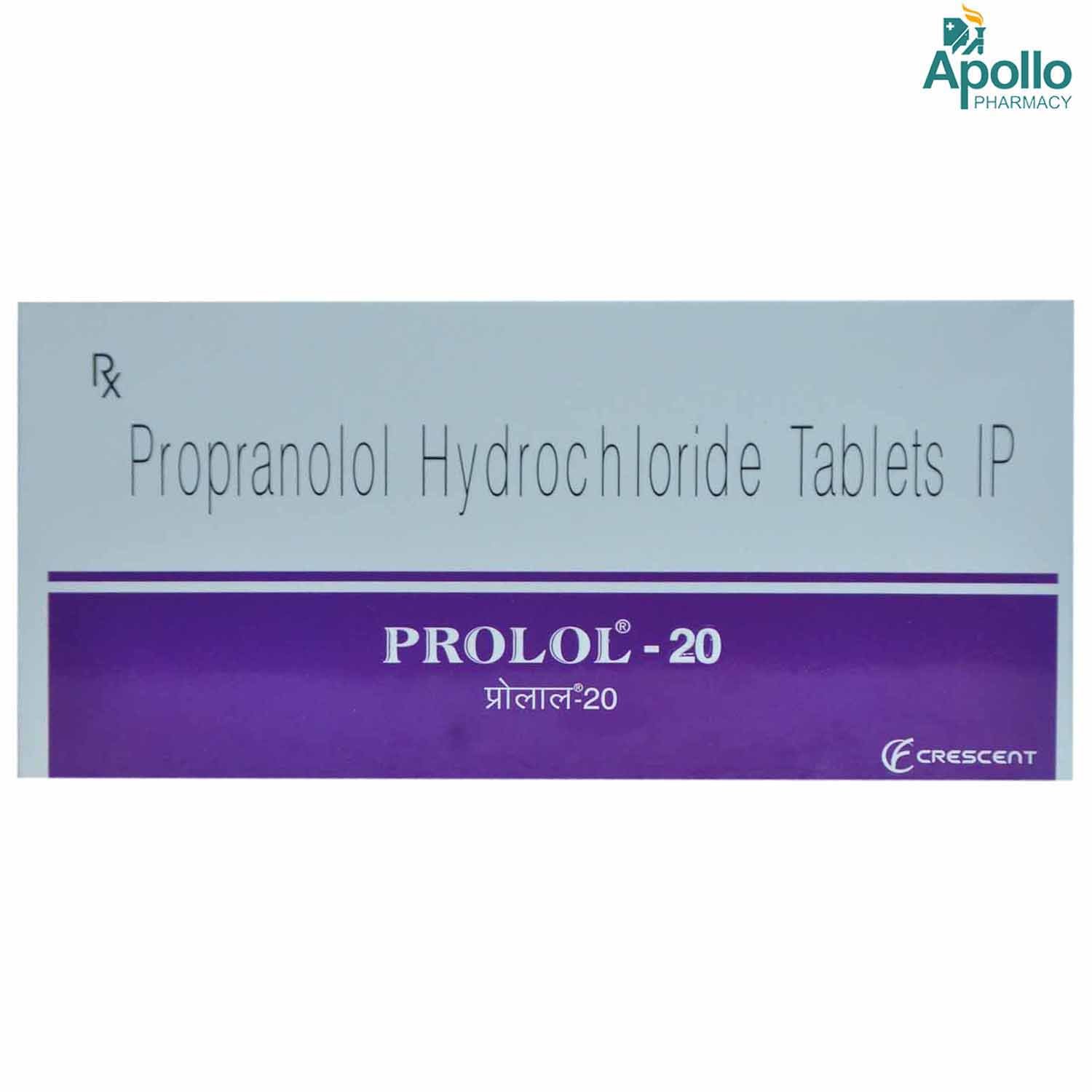
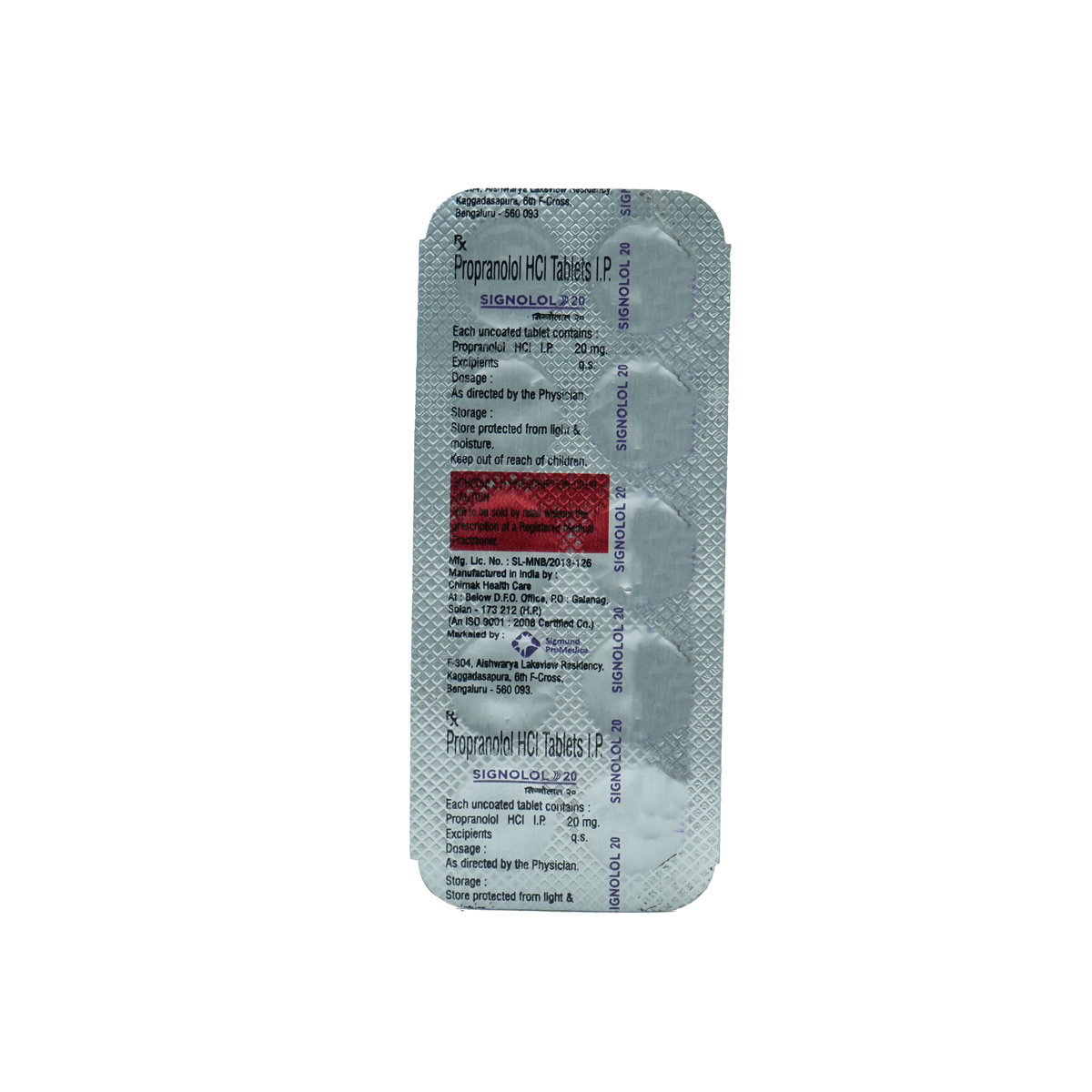
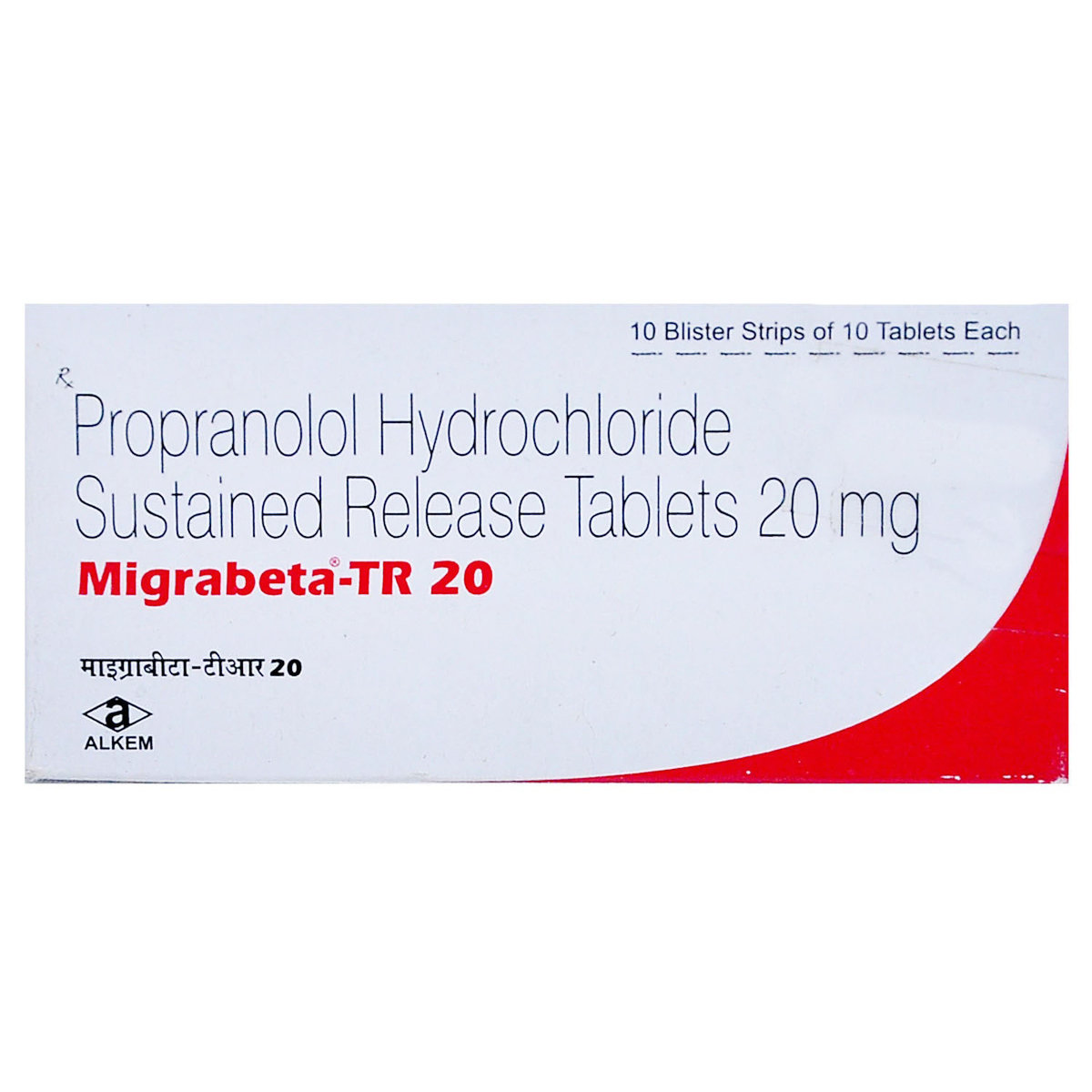
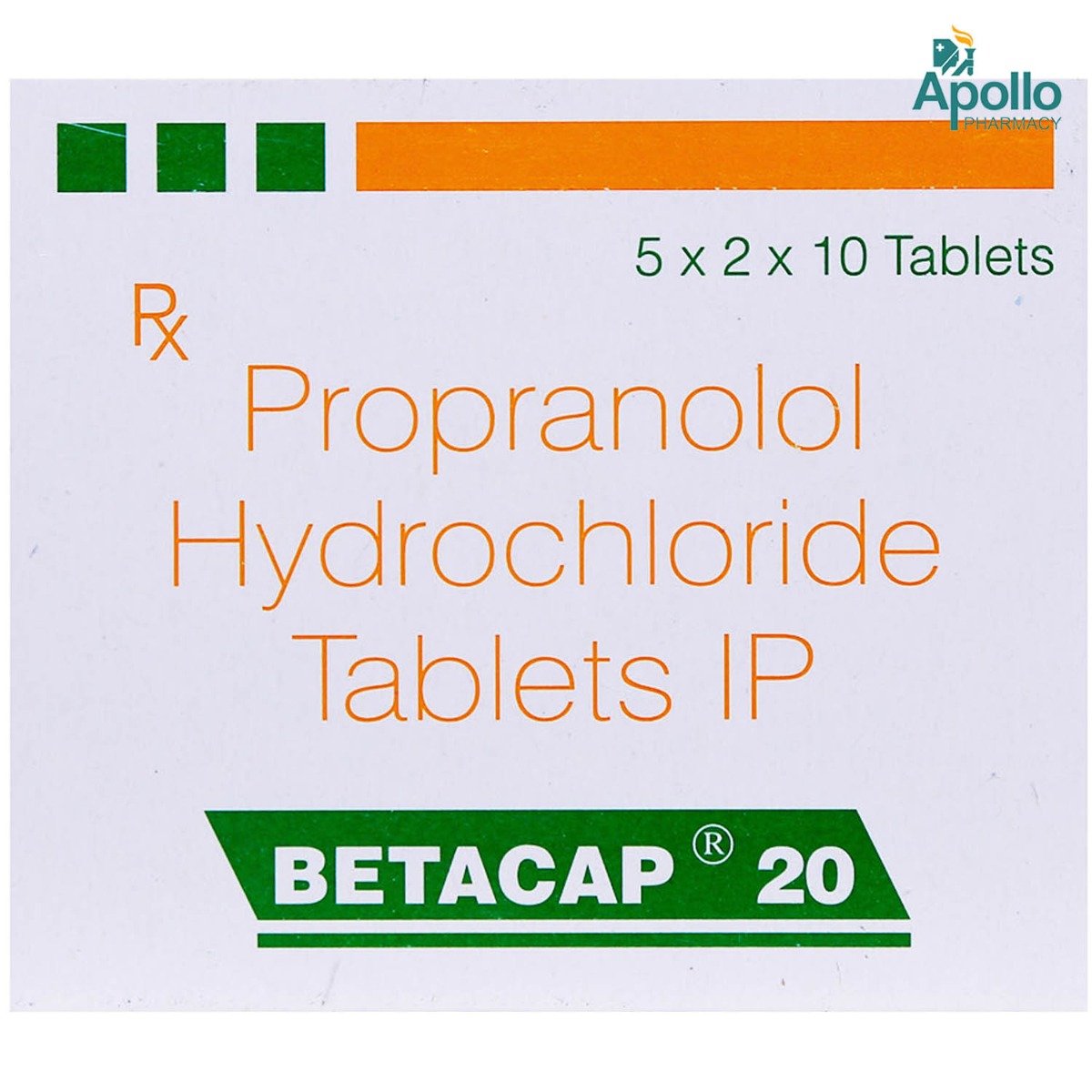
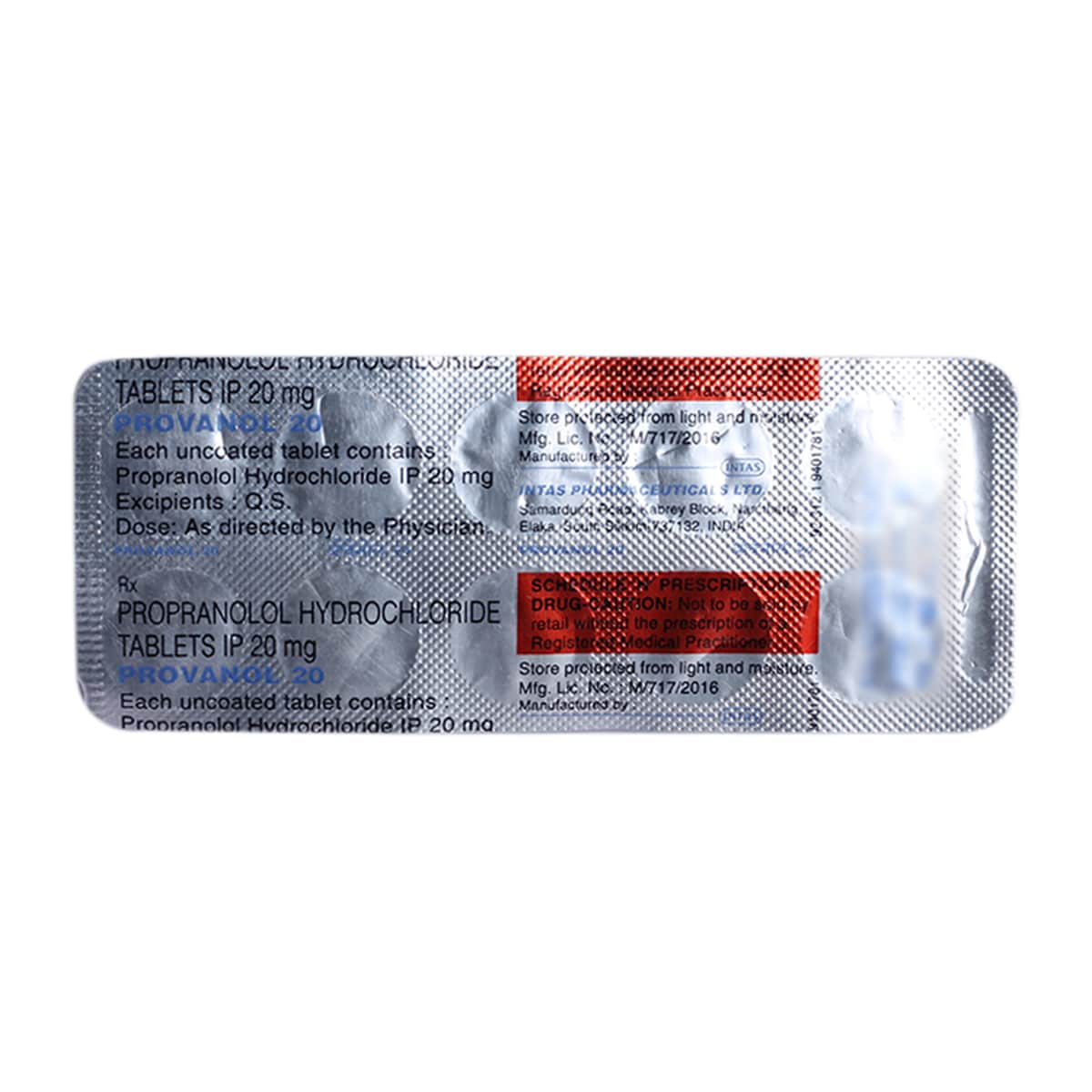
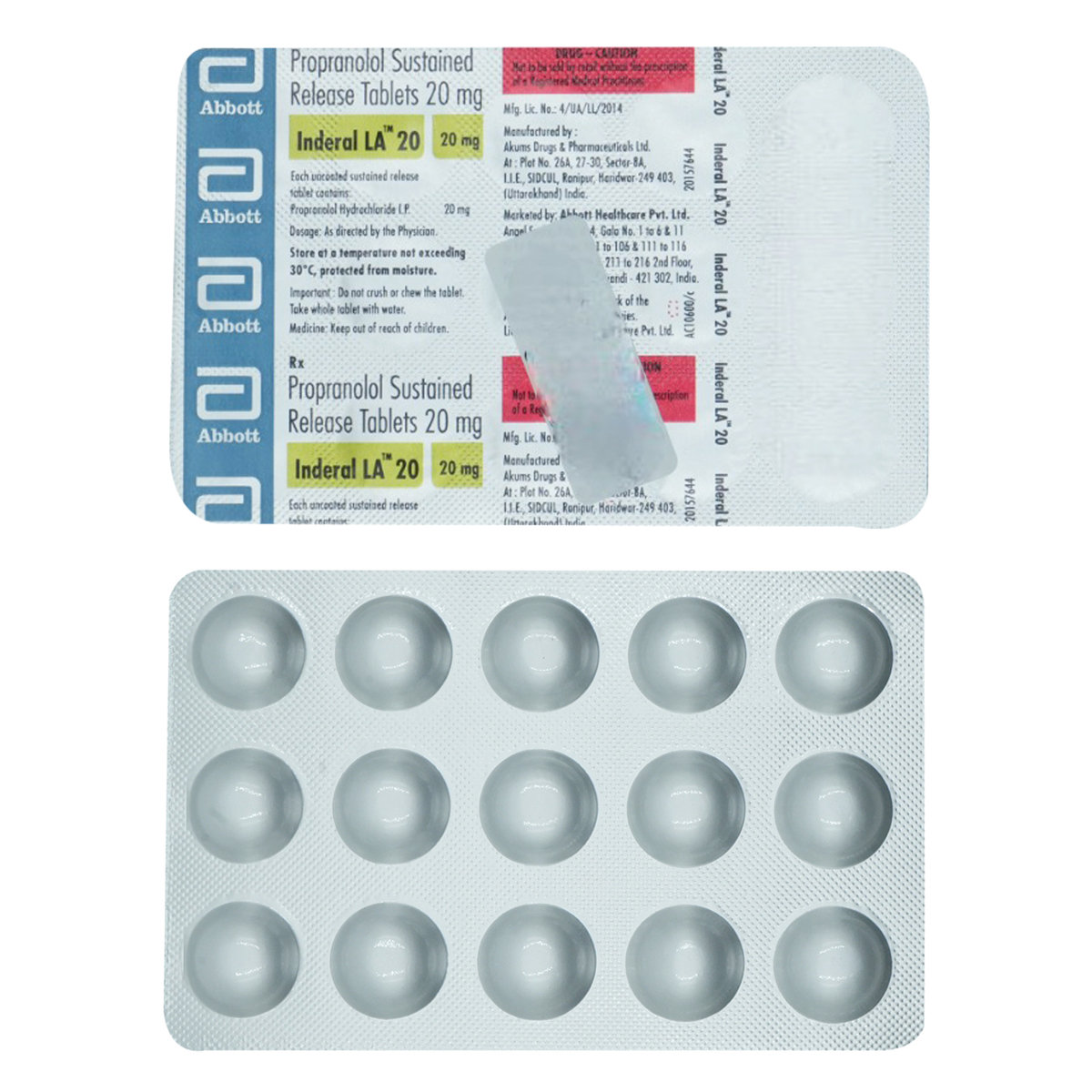
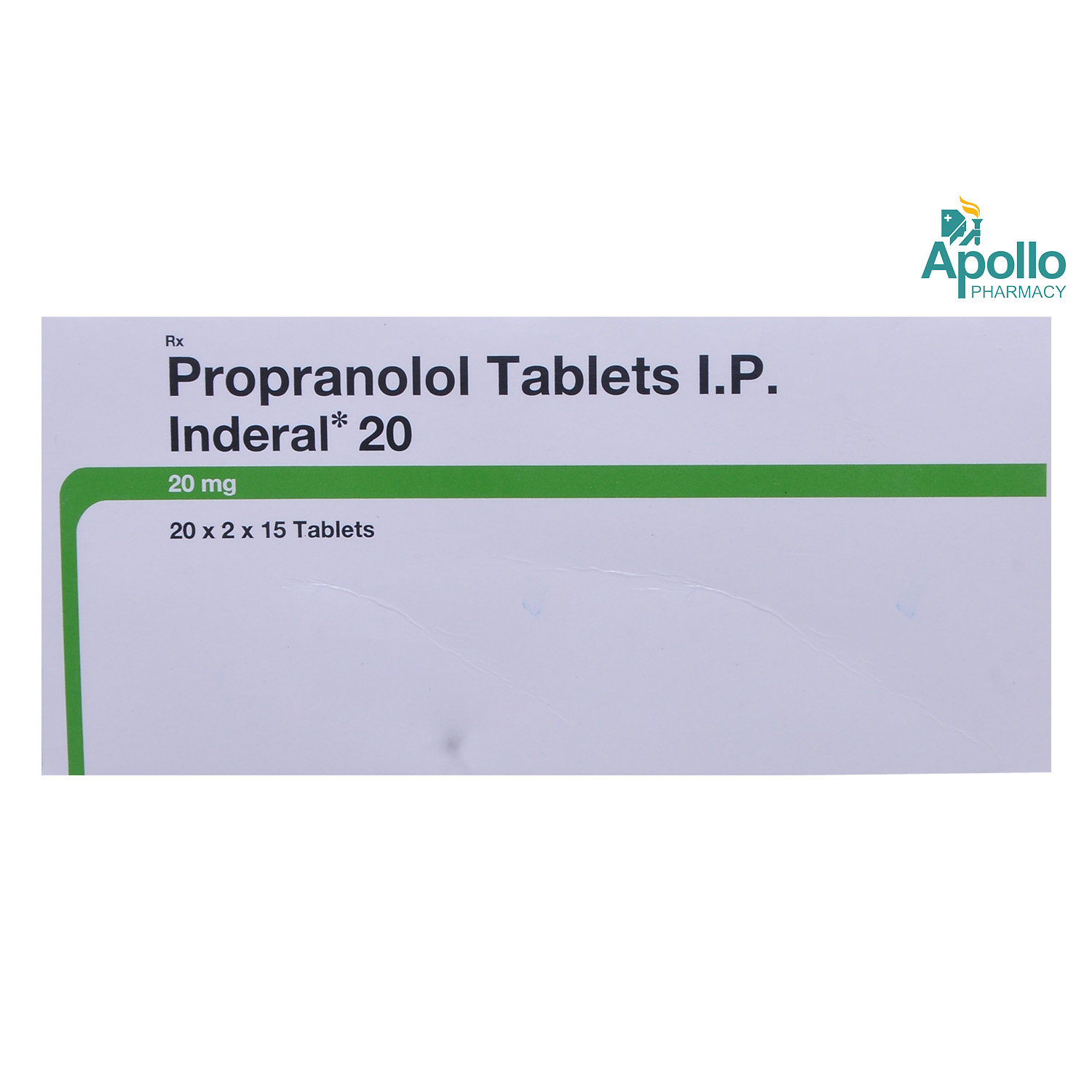
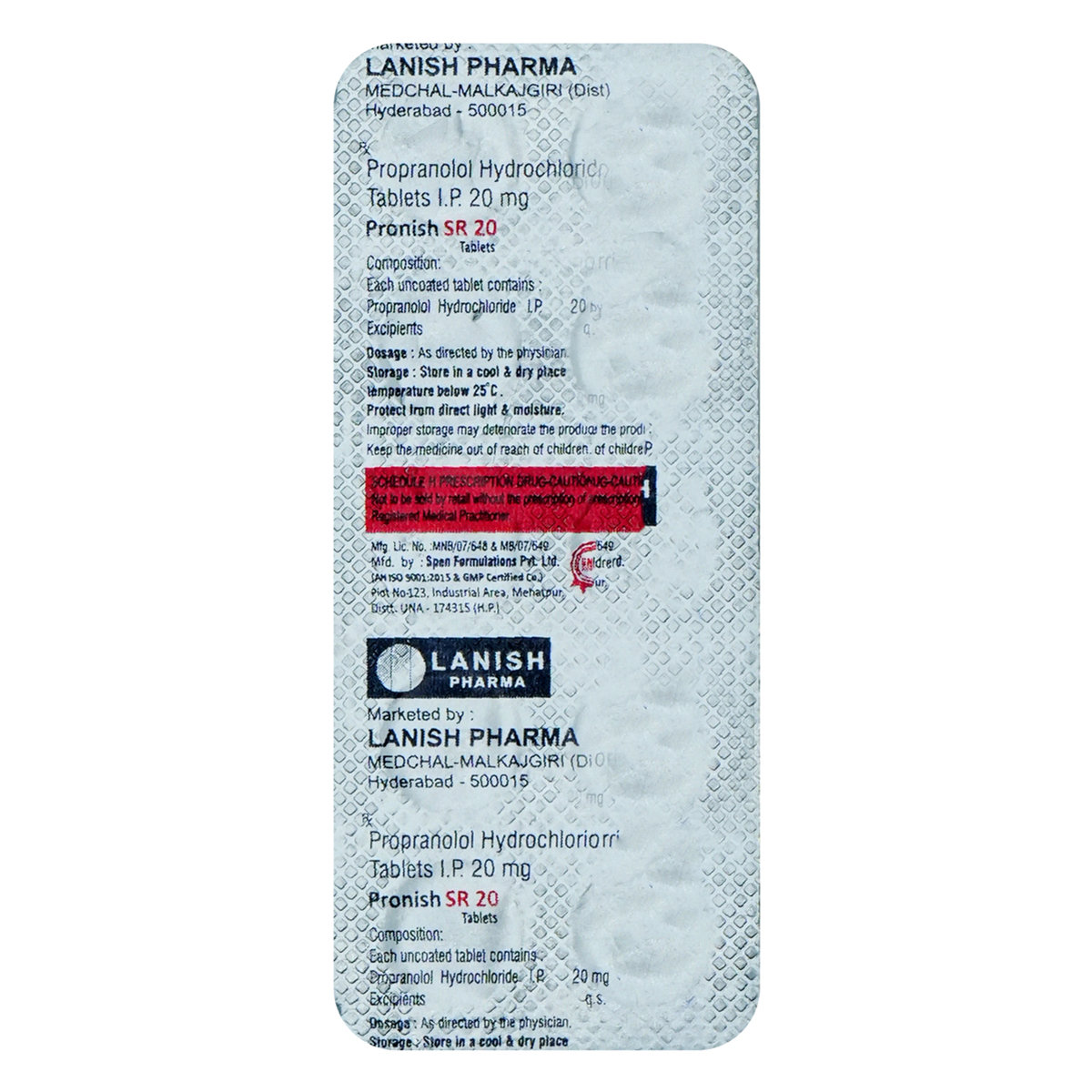


_0.jpg?tr=q-85)
